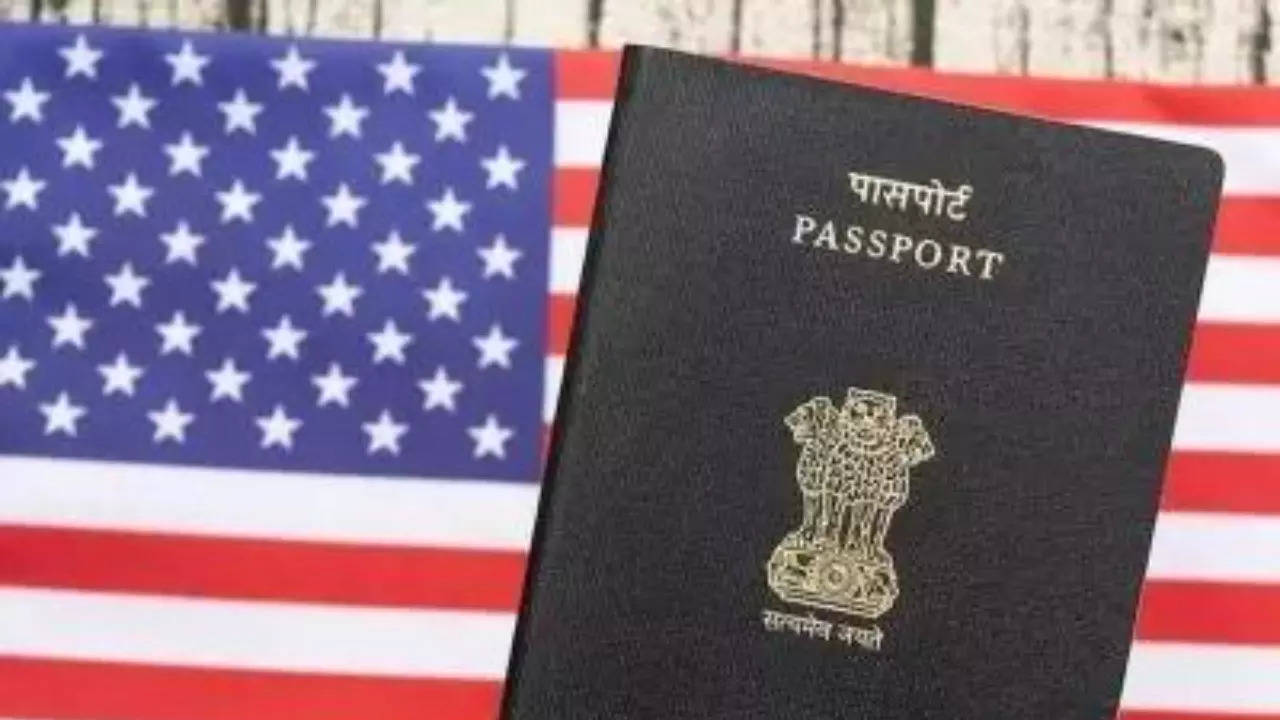The H1B Visa debate has taken center stage amid growing layoffs in the tech industry. Perplexity AI’s Indian-origin CEO, Aravind Srinivas, recently addressed claims that H1B visa holders are displacing American tech workers. He dismissed these allegations, emphasizing that such narratives are “not data-driven.” Srinivas pointed out that Indians, too, are among those being laid off, and highlighted illegal immigration as the real issue affecting employment dynamics.
What Is The H1B Visa And Why Is It Controversial?
The H1B visa is a non-immigrant visa that allows U.S. companies to employ foreign workers in specialized fields like IT, engineering, and healthcare. While it plays a crucial role in addressing skill shortages, critics argue that it undermines job opportunities for American citizens. These claims have led to heated debates, especially during economic downturns when layoffs are rampant.
Srinivas’s remarks come in response to such criticisms. He noted that the tech industry is undergoing a global crisis, with employees from diverse nationalities, including H1B visa holders, facing job losses. This counters the narrative that foreign workers are the primary cause of American unemployment.

The Impact Of Layoffs On H1B Visa Holders
H1B visa holders are uniquely vulnerable to layoffs due to strict immigration rules. If they lose their jobs, they have a limited time to secure new employment or face deportation. This places immense pressure on these workers, who often uproot their lives to contribute to the U.S. economy.
Recent data reveals that a significant number of H1B visa holders were impacted by layoffs in 2023 and 2024. The tech industry, in particular, saw massive job cuts as companies like Meta, Amazon, and Google downsized to manage costs. Indian nationals, who form the largest group of H1B visa recipients, bore the brunt of these layoffs.
Illegal Immigration Vs. Legal Immigration
Srinivas highlighted an important distinction between legal immigration, such as the H1B visa program, and illegal immigration. He argued that blaming H1B visa holders for job losses is misplaced and distracts from the real issues. “The problem lies with illegal immigration,” he stated, urging policymakers and critics to look at data before jumping to conclusions.
This distinction is often overlooked in public discourse. While legal immigrants contribute to the economy by filling skill gaps and paying taxes, illegal immigration poses challenges such as unregulated labor markets and strain on public resources. Srinivas’s call to focus on these nuances adds a valuable perspective to the immigration debate.
Data-Driven Insights Into Job Losses
According to Srinivas, a data-driven approach reveals the true drivers of layoffs. Economic factors like inflation, declining revenues, and shifts in consumer behavior have forced companies to restructure. The global tech industry, which thrived during the pandemic, has seen reduced demand post-pandemic, leading to widespread job cuts.
In this context, targeting H1B visa holders ignores the broader economic realities. Experts suggest that layoffs are a natural response to changing market conditions rather than a reflection of immigration policies. Data shows that layoffs have affected employees across all demographics, making it clear that the issue is more complex than it appears.
The History Of The H1B Visa Program
The H1B visa program was introduced in 1990 to address labor shortages in specialized fields. Over the years, it has become a critical tool for American companies to remain competitive globally. However, it has also been a subject of controversy, with critics arguing that it suppresses wages and displaces local workers.
Historical data challenges these claims. Studies have shown that H1B visa holders complement rather than replace the American workforce. By filling skill gaps, they enable companies to grow, creating more jobs for everyone in the long run. Srinivas’s remarks align with this perspective, calling for a balanced view of the program’s impact.
The Role Of Indian Immigrants In The U.S. Tech Industry
Indian nationals account for over 70% of H1B visa recipients, making them integral to the U.S. tech industry. From engineers to CEOs, Indian professionals have contributed significantly to innovation and growth. Srinivas himself is a testament to this success, leading Perplexity AI, a company at the forefront of artificial intelligence.
Despite their contributions, Indian immigrants often face discrimination and scapegoating during economic downturns. Srinivas’s comments highlight the need to recognize their role in driving progress rather than vilifying them based on misconceptions.
Moving Toward A Constructive Debate
The H1B visa debate is unlikely to disappear, but Srinivas’s insights offer a way forward. He calls for constructive discussions based on facts rather than fear-mongering. Policymakers, industry leaders, and citizens must work together to address unemployment without unfairly targeting immigrants.
For H1B visa holders, this means advocating for policies that provide job security and pathways to permanent residency. For critics, it means understanding the broader economic factors at play and focusing on solutions that benefit everyone.


